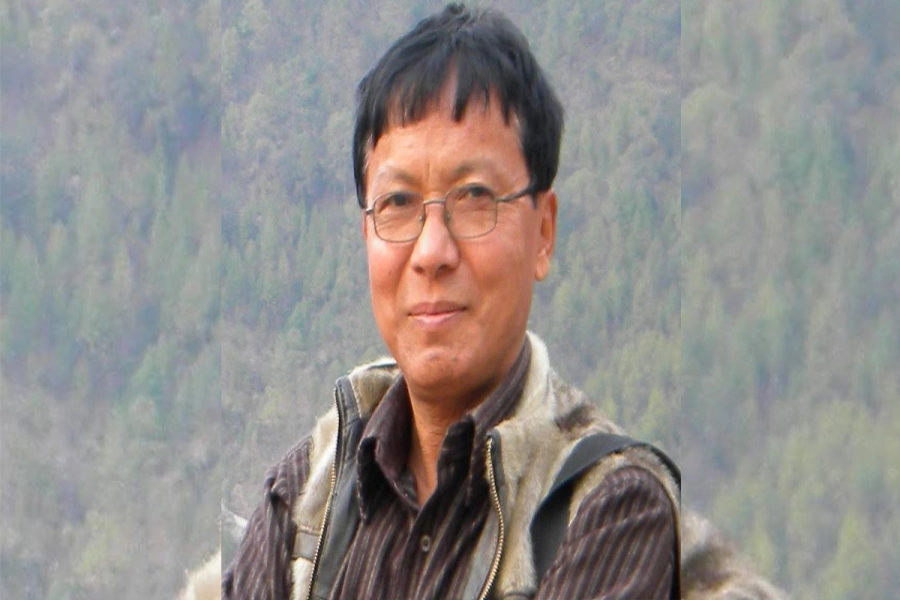The pedagogical approach of higher education is meant to cater to the psycho-social formation of the students.
In addition, digital supremacy is rapidly rising as the young generation is educated more from online content, creating confused convictions in their thoughts. This scenario has challenged educators worldwide.
A context today
In the context of the colleges in Nepal, it’s not uncommon to see students in tracksuits and bathroom slippers dragging themselves to college late enough to miss the first segment of the lecture. It's not unusual for punctual students to wait patiently for their teacher to arrive in the class. It's not rare for students and teachers to pull out their mobile phones in the middle of the dedicated time of the class and engage in personal affairs. Today’s university studies, at least in Nepal, have all the reason to revisit the noble vision and purpose of education as a discipline.
The understanding that after high school the code of conduct and character formation measures can be compromised and relaxed has harmed the formative growth of the young students. From 15 to 23 years of life, an individual sets the foundation for the professional and personal life ahead of them. The pedagogical approach of higher education is meant to cater to the psycho-social formation of the students. University studies become a learning and transforming experience when imparted with the capacity for intellectual and character formation.
In addition, digital supremacy is rapidly rising as the young generation is educated more from online content, creating confused convictions in their thoughts. This scenario has challenged educators worldwide.
Great Leadership: A Road Less Traveled

A takeaway from the philosophy of Gurukul education
The acclaimed oldest kind of education, traced to 4000 to 500 BC, is the Gurukul system of education, where the students lived with the gurus and learned discipline to live a morally upright life in society. Besides, the students learned skills and acquired knowledge through a practical approach, such as yoga and meditation, and the guru’s instruction and teachings. The students learned to conquer the unhealthy aspects of life and live a life of virtue and greater inner freedom. In short, the Gurukul system was focused on the holistic formation of the students, which has been the objective of education since classical times.
Revisiting the classical understanding of education
The all-time classical philosophy of education is found in the discourse of Plato in his book The Republic. Plato’s view of education’s objective is to reform individual character and contribute to personal and social justice. Besides, education must turn the person toward their soul, form an understanding of moral codes, and integrate it into their life. The intellect is set free to rise toward the truth through the fortitude of intellectual and moral development. The writings of Plato explicitly state that the fullness of personal talent is achieved through education, and the educational system must cater to the individual’s excellence. By attaining the best of your ability, you have achieved personal justice, and by providing your service to the nation, you have contributed to social justice.
When subject knowledge in the classroom does not rise to cognitive functions and fails to bring progress in the philosophical and moral aspects of the students, education as a school falls short of its objective.
What do researchers say?
Educational leadership scholars argue that among the various skills that students develop, education pedagogy must rise above the subjects and hard skills to the formation of mind, heart, and conscience. Therefore, many universities abroad include philosophy, theology, and psychology in the core curriculum, intending to humanize the curriculum. The core curriculum is mandatory for all streams, whether natural science, medicine, or engineering. It helps the students to develop critical thinking abilities and a clear conscience and nurtures their emotional well-being as well. The formative school of thought sternly stresses the holistic formation of the students through education. Studies conducted on the current leaders identified that many of their inner qualities, organizational skills, critical thinking, and compassionate nature are rooted in their curricular and cocurricular experiences in the schools and colleges they attended. Therefore, the kind of education provided to the students plays a more prominent role in their overall development.
What can we do?
Forming the formators
Professional competency is achieved through adequate qualification and various matching trainings to help the formators upgrade their educational leadership competencies. In Nepal, if someone wants to begin a career in teaching, a degree in education or designated training is not mandatory. Most teachers learn the profession of teaching by doing it. Not all schools and colleges have the environment or system to mentor new teachers through training or implementing a pedagogy. This leaves a vacuum in the noble profession of teaching, which can be addressed through relevant educational degrees and ongoing formational programs on educational pedagogy. Thus, a teacher is equipped with the skills to go beyond the subject knowledge.
Foundation for life: Development of soft and hard skills
Soft skill refers to the skills that become a student’s personality traits, such as emotional maturity, leadership styles, interpersonal skills, ability to listen, and the list goes on. The hard skills are specific task-oriented skills necessary to accomplish a certain task, namely accounting, drawing, running an experiment in the lab or learning to play a musical instrument. If educational pedagogy is not centered on the holistic person, it can be largely skewed toward hard skill development. The university degrees provided have the unaddressed lacuna of personal formation. This leaves a graduate unprepared to meet the professional world and personal life, with a poor discerning aptitude and flawed ethical standards in the workplace.
Educational environment
A plant grows and bears much fruit when planted in suitable soil, a nurturing environment is provided, and growth is attended to. The gardener knows when to weed the ground, what manure to provide, and what insects to watch out for. Education is no different from this. The environment of academic competency, emotional safety, formal yet personal teacher-student interactions, and a well-defined system and code of conduct in the college contributes immensely to the overall formation of the students. The teacher is a gardener who listens to the students not merely with the ears but also with the eyes and heart. Then, teaching becomes a noble profession! This is when a teacher becomes an educational leader!












-1765954965.webp)


























